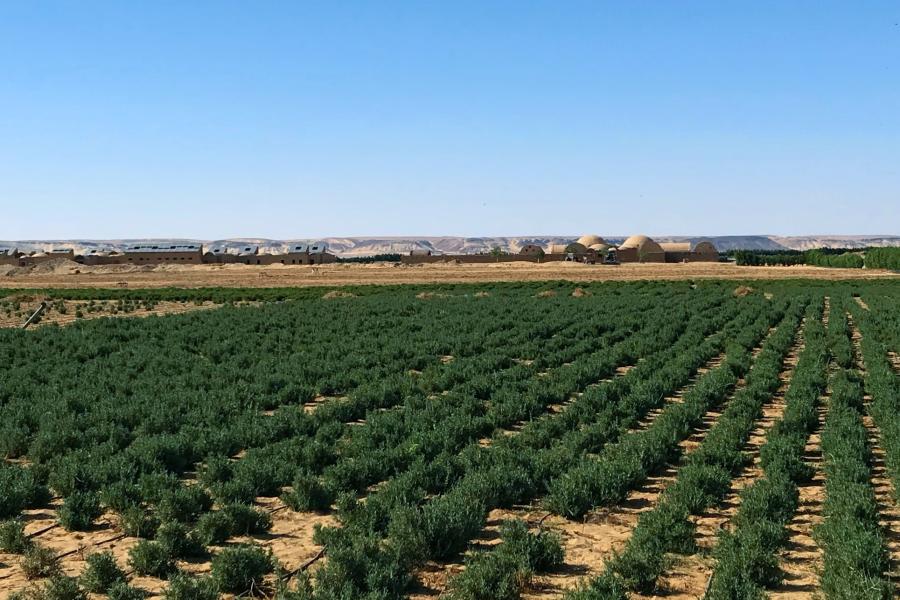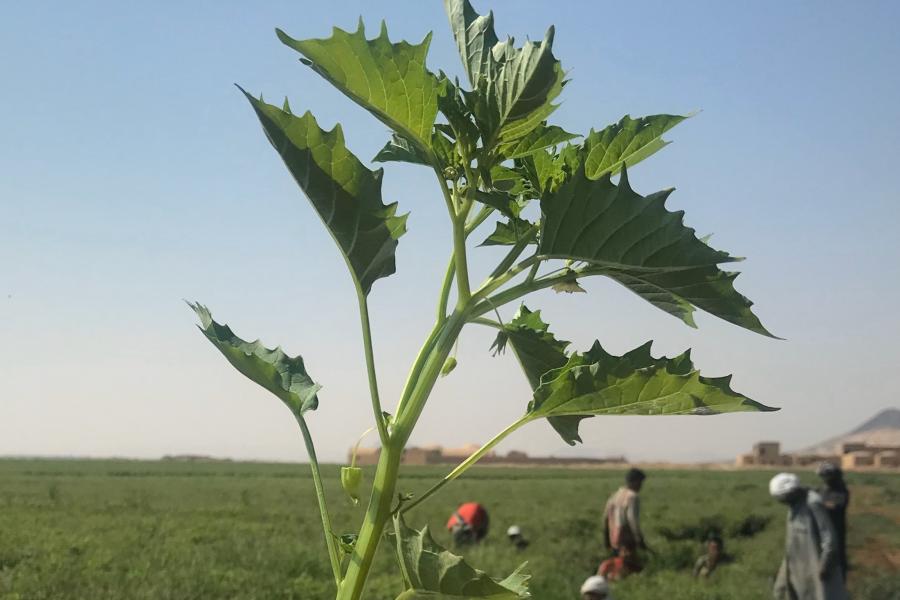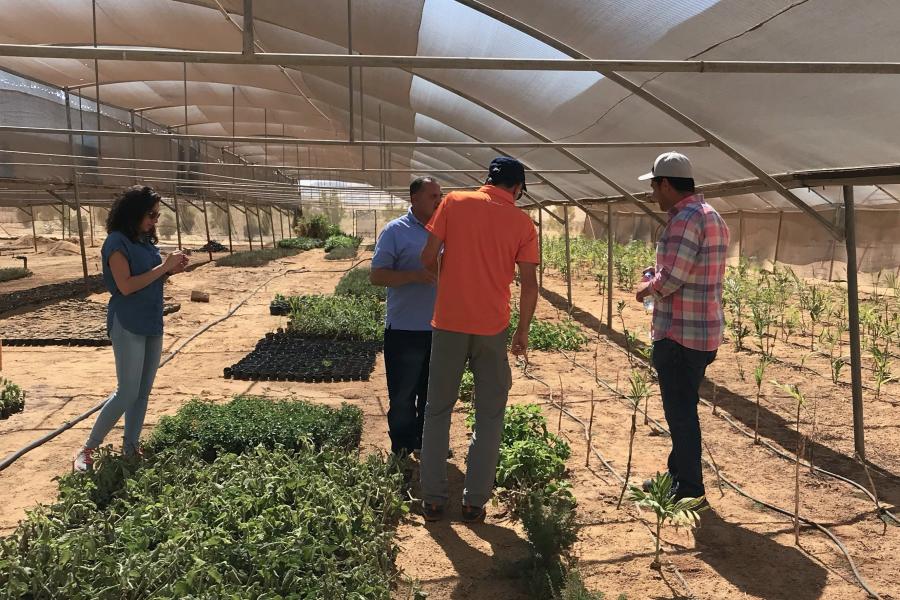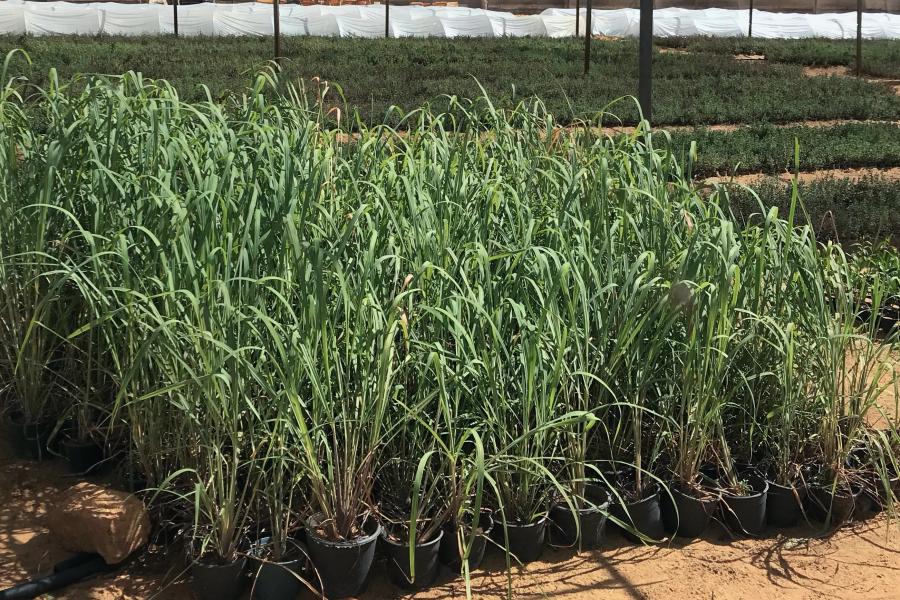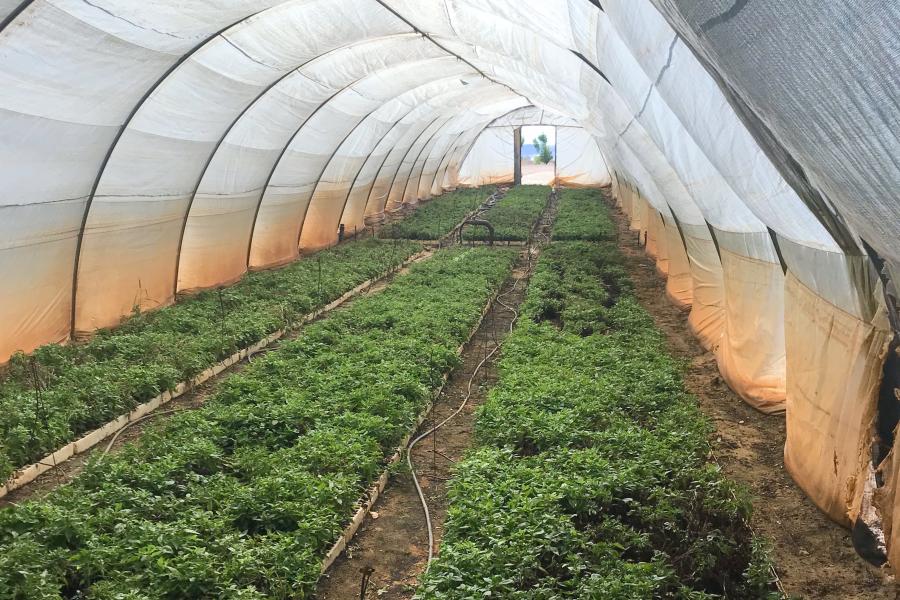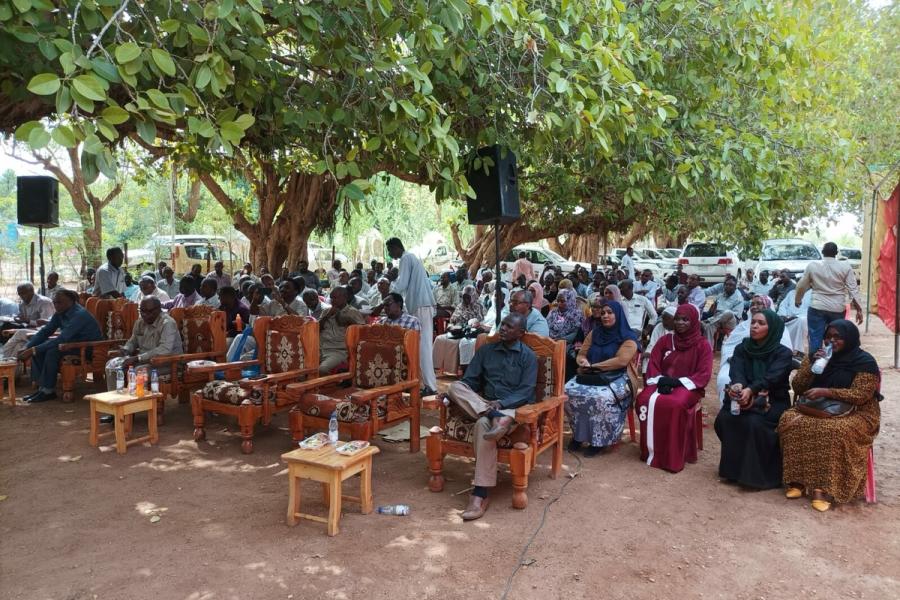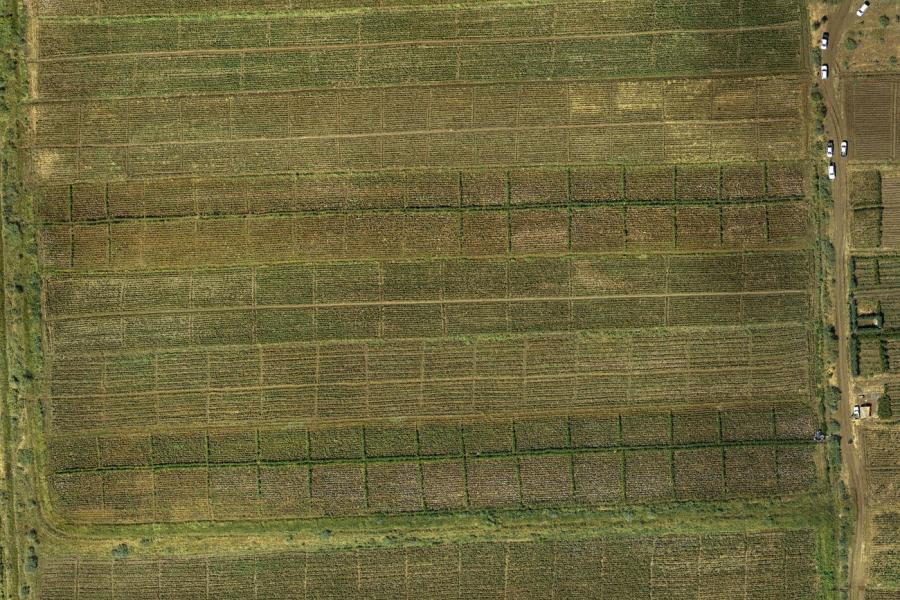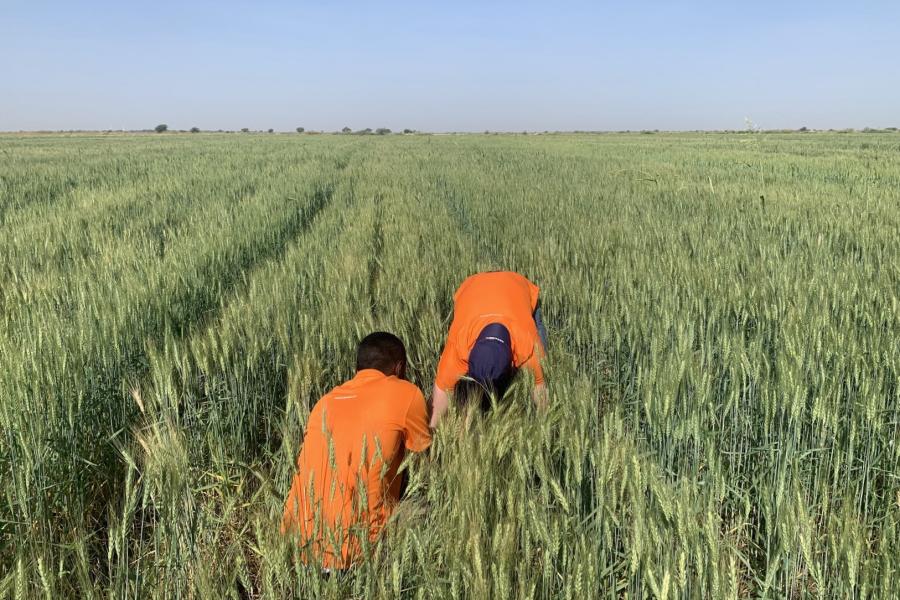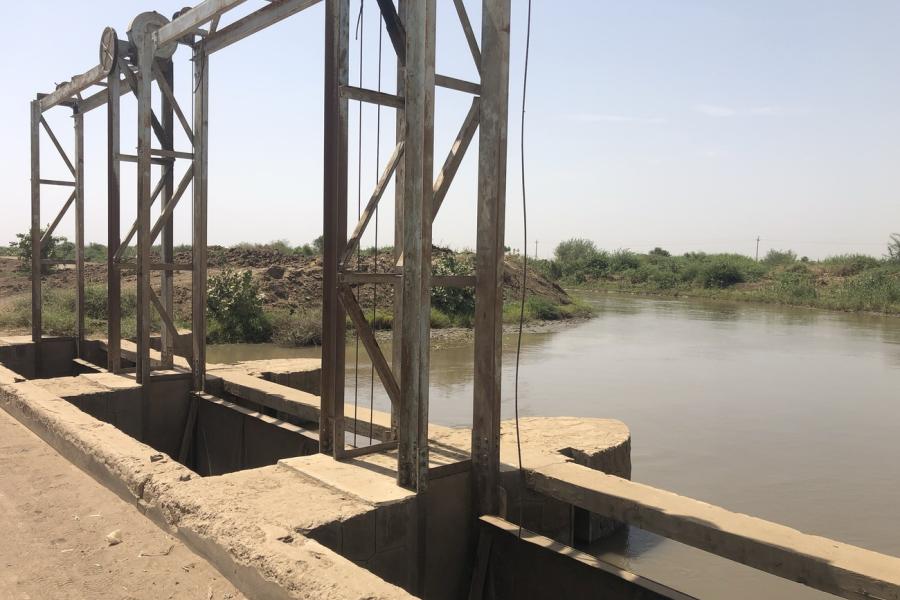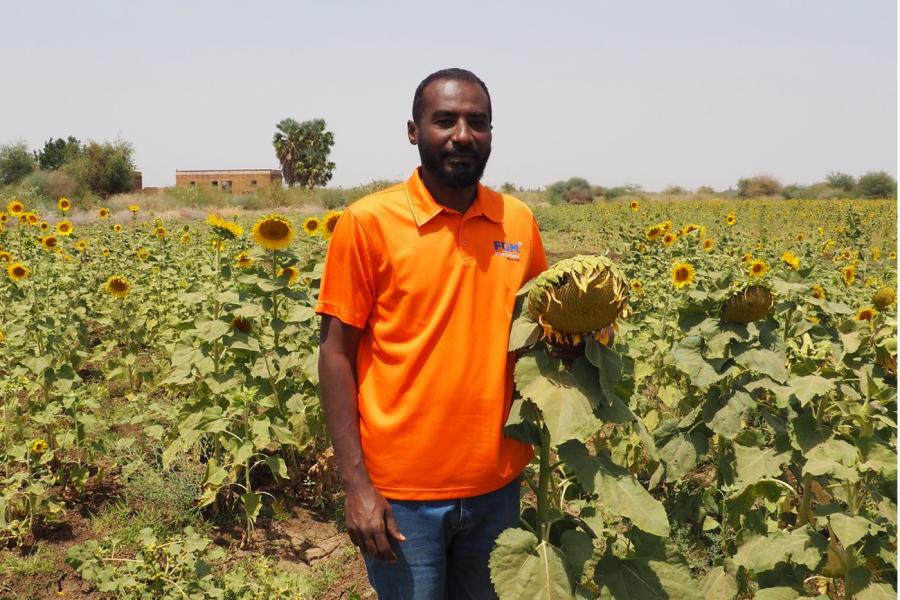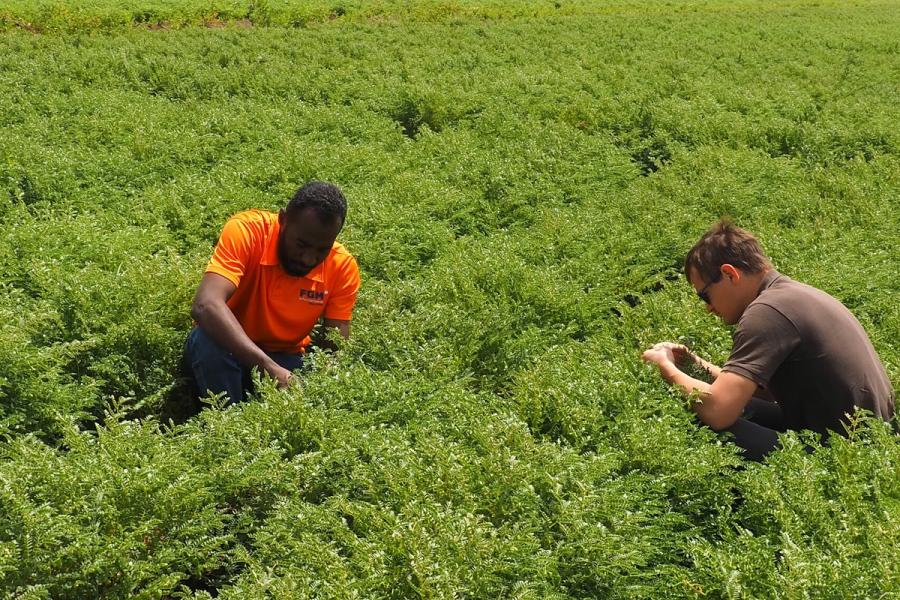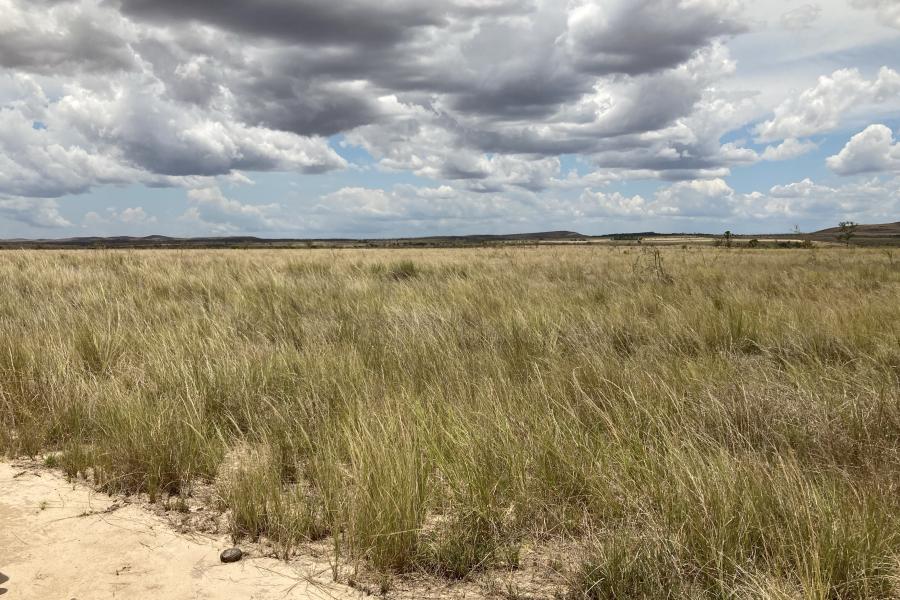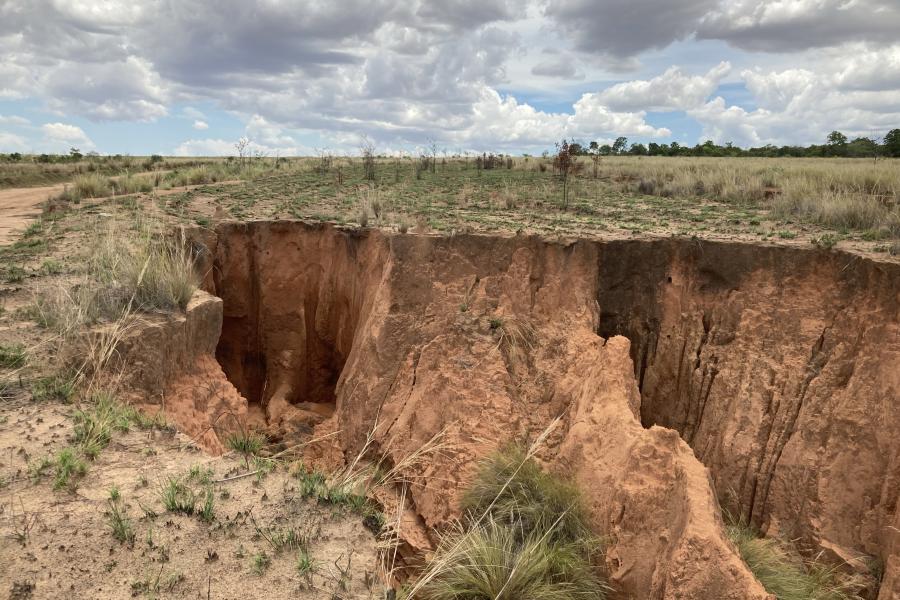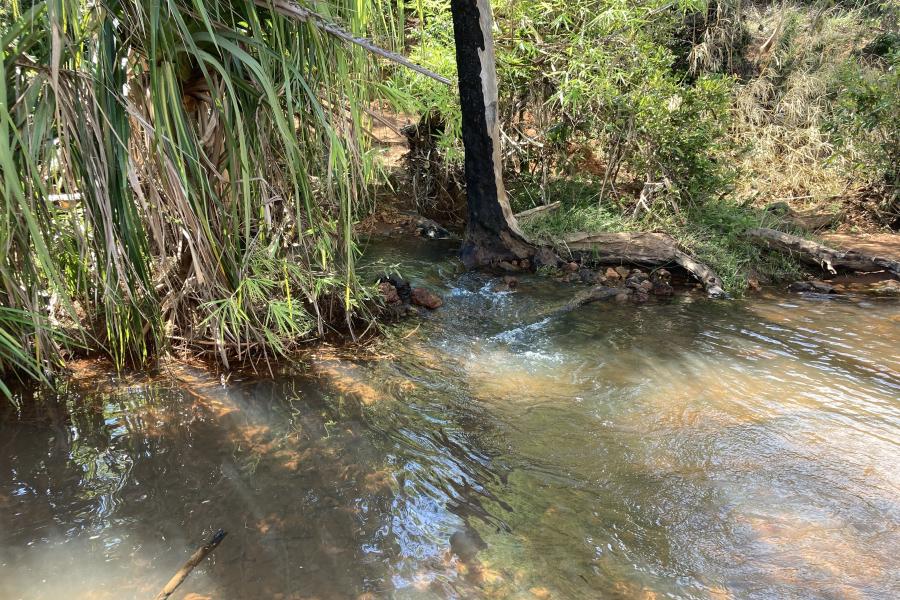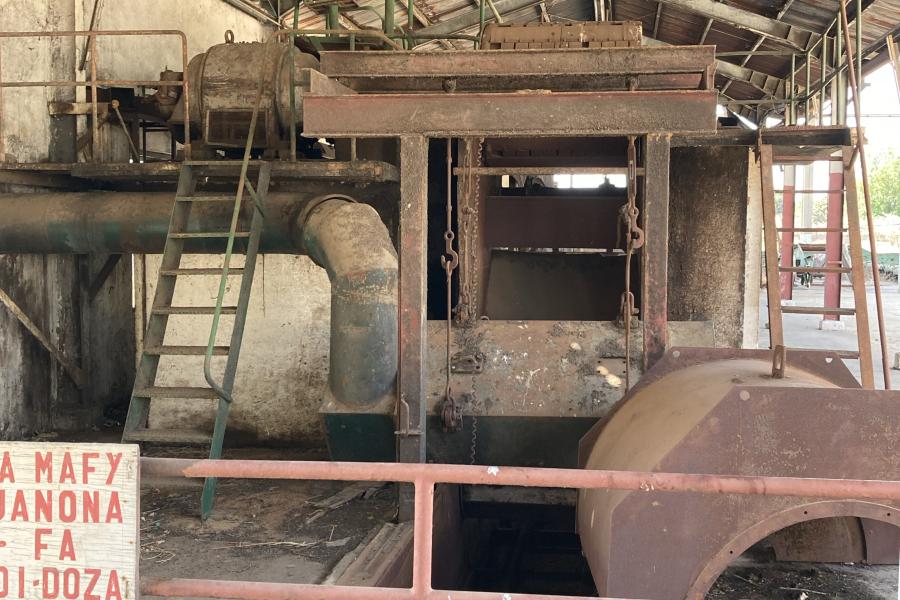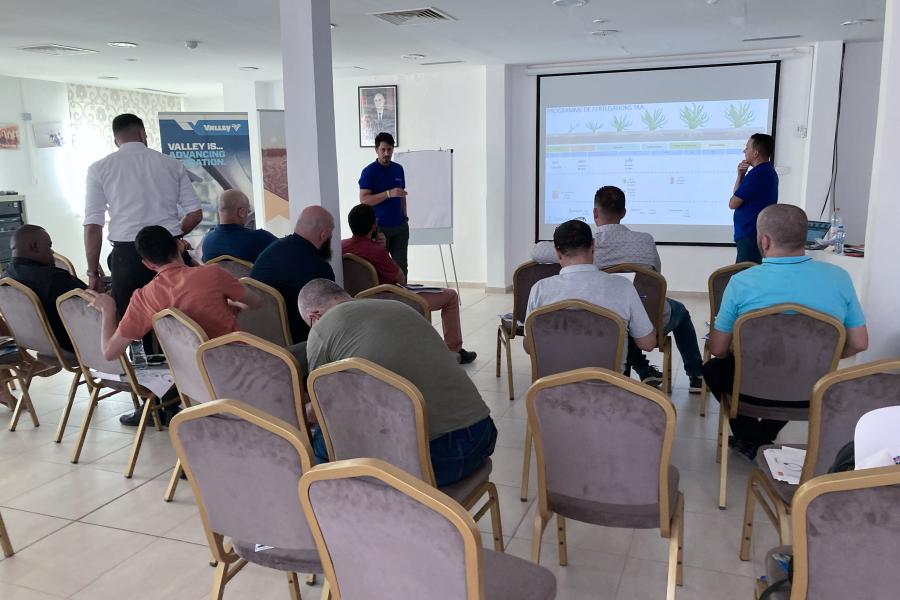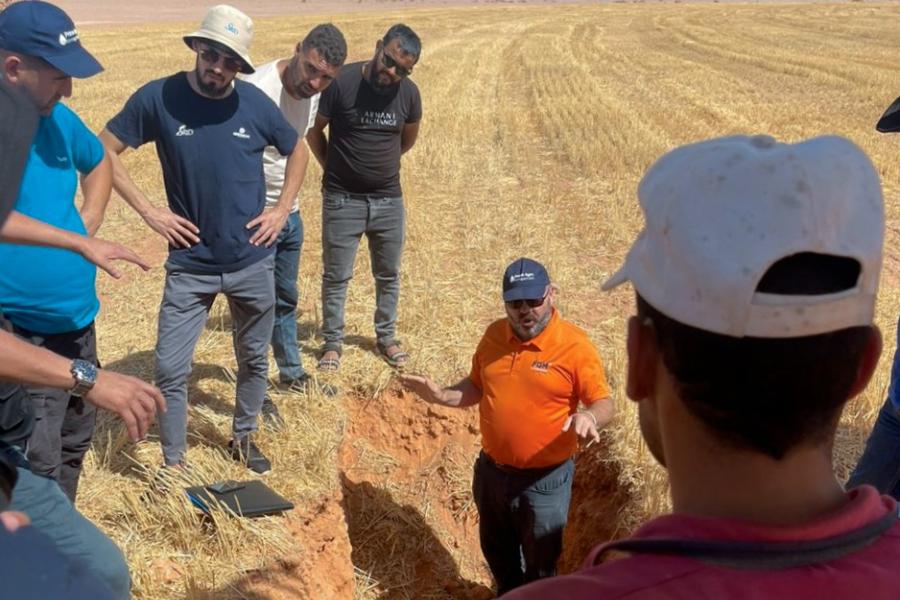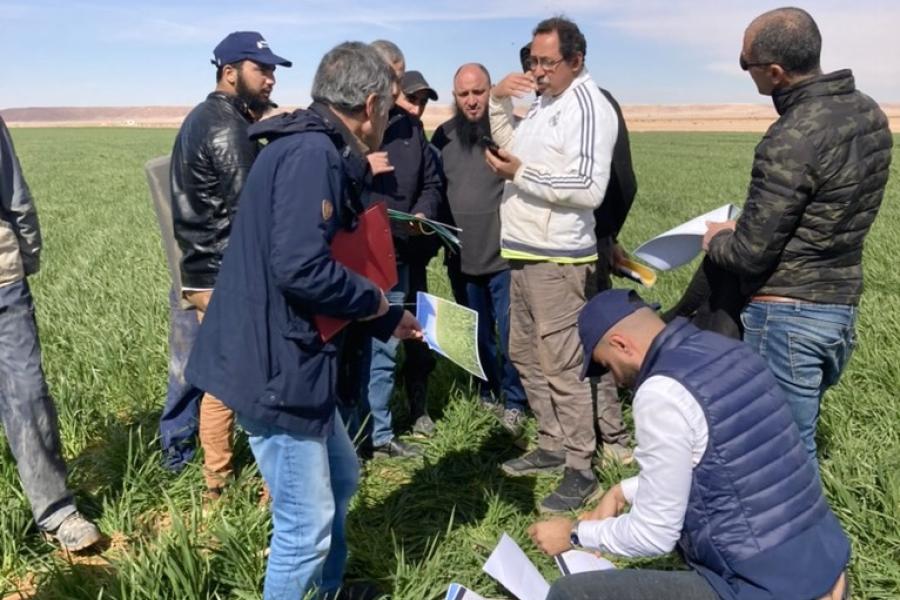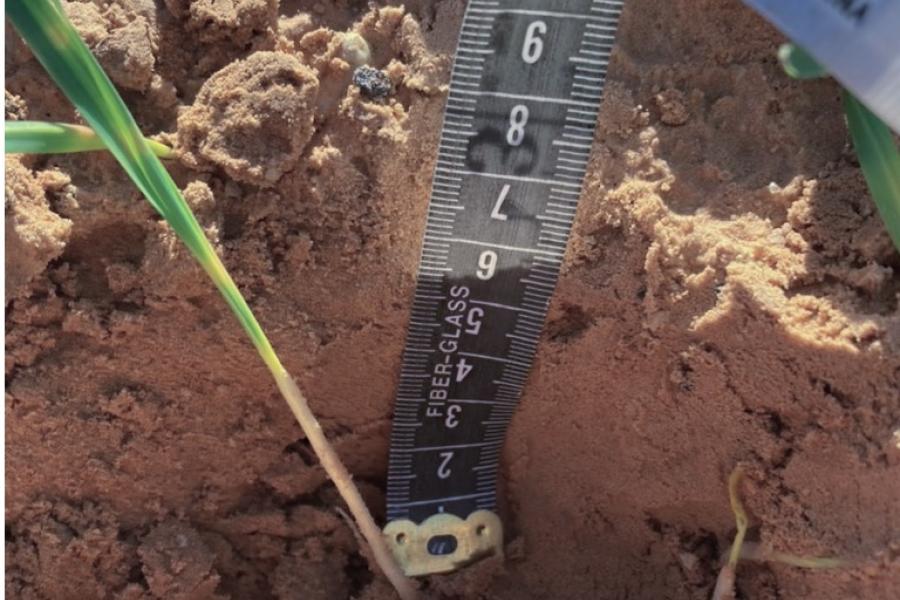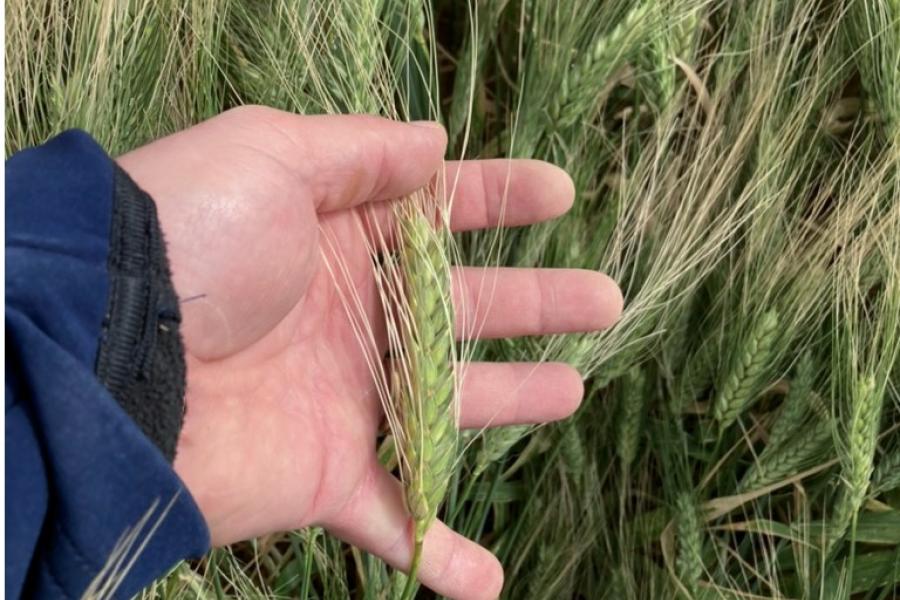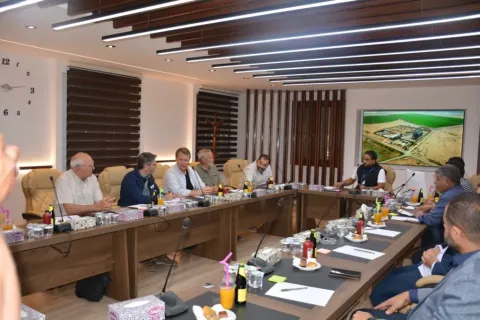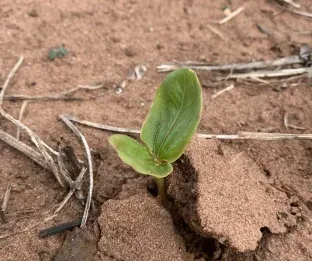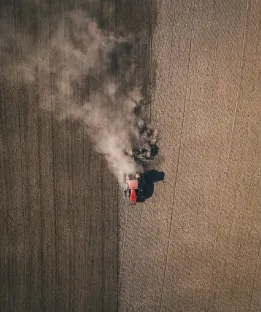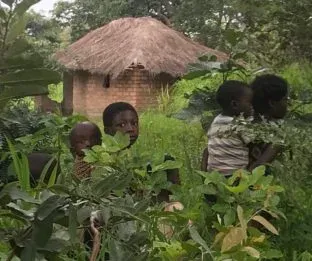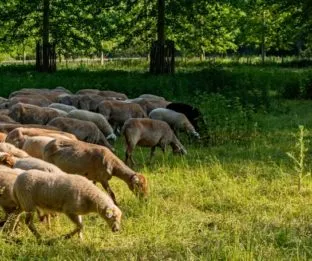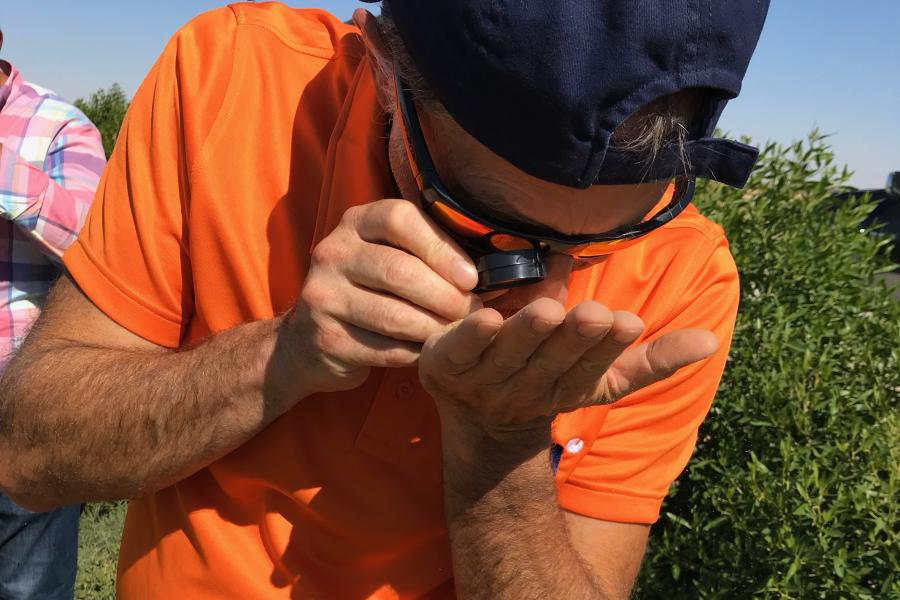
Expert Farmer was commissioned by Ezdehar to conduct a technical due diligence of a key production site for essential oils and herbs in Egypt. The mission aimed to assess the feasibility of the business plan and provide strategic recommendations for sustainable agricultural development.
Image
Strategic agricultural advisory for Project Aroma
LocationEgyptProductionAromatic and medicinal plantsDelivery2019Area1 300 haClientEzdeharSectorPrivateService(s)Technical due diligenceThe challengeRemote location, aging equipment, limited weather data, and weak maintenance protocols posed significant challenges to efficient farm operations and strategic planning.
The resultThe study enabled the client to refine its investment strategy by identifying operational gaps and prioritizing improvements in management, infrastructure, and crop profitability.
Brief of the projectExpert Farmer mobilized a multidisciplinary team to conduct a comprehensive review of Bahareya Farm. The activities were structured into key areas as described below.
Technical and agronomic assessment
Our experts conducted field inspections and reviewed crop management practices, irrigation systems, and soil quality. We identified opportunities to improve yields by 25% through better agronomic practices and input management.
Infrastructure and equipment review
We evaluated the condition and adequacy of farm infrastructure, including workshops, irrigation systems, and equipment fleets. Recommendations were made for critical CapEx investments to ensure operational continuity and efficiency.
Economic and strategic analysis
A detailed review of crop profitability, cost structures, and business planning was performed. We highlighted the need for a crop-focused strategy to enhance EBITDA and long-term profitability.
Management and HR evaluation
The team assessed organizational structure, staffing, and management practices. We proposed improvements in HR policies and incentive schemes to attract and retain skilled agronomists and operators.
HighlightsDigital transformation of agricultural sector
In addition to addressing climate-related factors, Expert Farmer advocates for a thoughtful and measured integration of digital technologies into farm management practices. Rather than pursuing rapid or large-scale technological change, we recommend a gradual introduction of digital tools that can complement existing workflows and empower farm teams over time. For example, adopting digital platforms for collecting field data can help farmers maintain accurate records of soil health, crop growth, and weather patterns. Similarly, using maintenance tracking software for equipment ensures timely servicing and reduces unexpected downtime, thereby supporting smoother operations throughout the season.
Crop monitoring technologies, such as remote sensors or aerial imagery, provide valuable insights into plant health and resource utilization, enabling farm managers to make evidence-based adjustments as needed. These incremental steps not only improve efficiency and transparency but also make day-to-day decision-making more robust. By embracing digital transformation at a sustainable pace, farms can build operational resilience and better adapt to changes in market demands and environmental conditions. Ultimately, this approach positions the farm to remain competitive and innovative, while maintaining a strong foundation rooted in practical experience and local knowledge.
Expert Farmer was selected to perform a comprehensive assessment of eight agricultural sites across Kenya to support the Land Commercialization Initiative. Our mandate was to evaluate the agronomic, infrastructural, and socio-economic potential of each site. This work aimed to facilitate the promotion of the site from the public sector to private investments in sustainable agribusiness ventures.
Image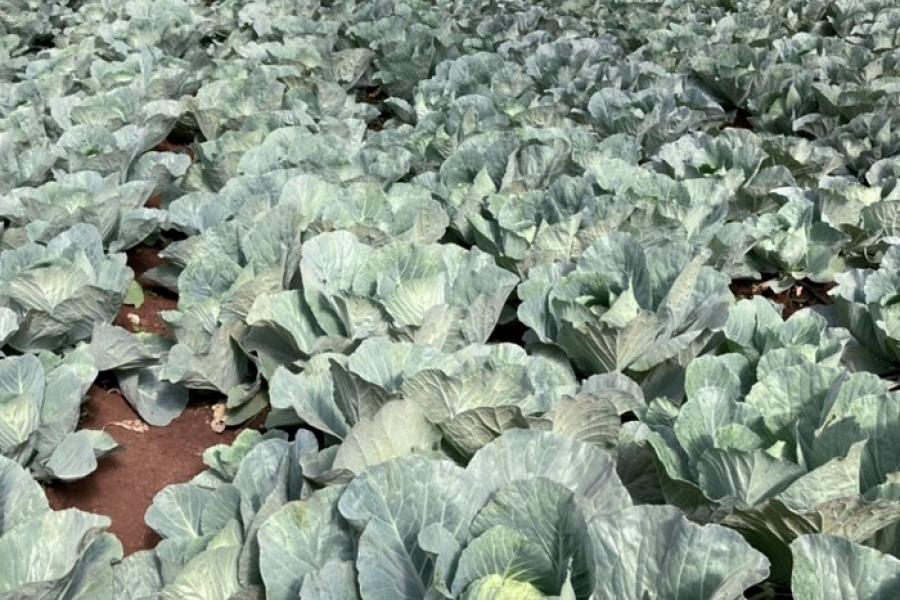
Kenya Agri Land Commercialization
LocationKenyaProductionCornRiceWheatSunflowerVegetablesDelivery2023AreaCountry wideClientIFC - World Bank GroupSectorIFI (International Financial Institution)Service(s)Technical due diligenceThe challengeAlthough the sites varied greatly, common challenges included poor infrastructure, limited water, land tenure disputes, and climate variability. Achieving both ecological sustainability and commercial viability was a frequent concern.
The resultOur assessments enabled the relevant Kenyan institution to promote investment strategies, prioritize viable sites, and align development plans with local realities. In addition, Expert Farmer provided actionable insights to support decision-making and stakeholder engagement.
Brief of the projectSite diagnostics and field investigations
Expert Farmer performed in-depth field visits to each site, collecting data on topography, soil profiles, climate, and water resources. Our team conducted soil sampling and analysis, evaluated existing infrastructure, and documented land use patterns. This groundwork provided a robust foundation for assessing agricultural potential.
Agronomic and technical assessments
Crop suitability was assessed using parameters including soil texture, pH, nutrient content, and climate conditions. Irrigation feasibility was appraised by conducting studies on water availability and infrastructure. Crop rotation plans were developed, and potential opportunities for mechanization and value-added production were identified for each site.
Infrastructure and access evaluation
Expert Farmer reviewed access for national roads, energy availability, and water conveyance systems. On some sites, our reports highlighted rehabilitation needs and investment requirements for canals, pumping stations, and power connections. We also assessed logistical constraints affecting market access and input supply.
Socio-economic and institutional analysis
We engaged with local communities, reviewed land tenure status, and identified potential social risks. Our work included mapping stakeholder dynamics and proposing inclusive models such as outgrower schemes. We also evaluated institutional readiness for public-private partnerships.
Strategic recommendations and valuation
Each report concluded with a SWOT analysis, suitability matrix, and rough land valuation. We tailored recommendations to investor profiles, highlighting scalable opportunities and risk mitigation strategies. Our deliverables supported IFC’s efforts to attract responsible agribusiness investors.
HighlightsClimate-smart agriculture: future-proofing your land lease
Integrating climate-smart agriculture (CSA) practices into land leasing strategies is increasingly recognized as a prudent approach to ensuring long-term sustainability and resilience in agribusiness. Adaptive irrigation methods, such as sensor-driven drip systems, can significantly improve water efficiency and help maintain yields under variable precipitation patterns. The selection of drought-tolerant crop varieties further mitigates production risks associated with shifting climatic conditions.
Additionally, the adoption of carbon-focused agronomic practices—including conservation tillage, cover cropping, and agroforestry—contributes to soil health, carbon sequestration, and broader ecosystem stability. These measures are in line with evolving regulatory requirements and the growing emphasis on environmental stewardship in agriculture.
Incorporating these climate-adaptive strategies into lease agreements, with mechanisms to encourage and monitor sustainable practices, supports the sustained productivity and resilience of agricultural investments. Adopting such approaches not only meets current expectations for responsible land management but also prepares operations for future climatic and market challenges.
To support the development of the agricultural sector in Sudan, the French government has recently mandated Expert Farmer to improve local farmers’ production performance in the Gezira Irrigation Scheme (800 000 ha). To achieve this, we implemented a series of crop production trials aimed at evaluating the viability of various agronomic practices under local conditions.
Image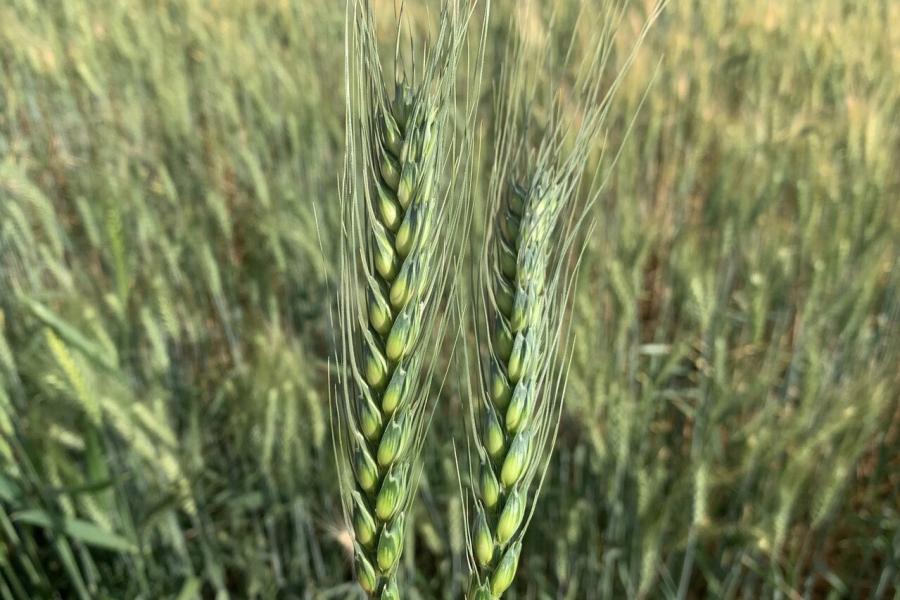
FASEP N°1238 - Technology demonstrator for sustainable agricultural practices
LocationSudanProductionWheatCastor BeansSunflowerCottonOkraDelivery2023Area800 000 haClientGezira Irrigated SchemeSectorPublicService(s)ImplementationManagementTailored serviceThe challengeThe need to coordinate a wide range of stakeholders—including farmers, local institutions, and international partners—within a politically unstable and logistically complex environment, was the most challenging part of the assignment. Additionally, outdated irrigation infrastructure, poor field leveling, and limited access to quality inputs and financing slowed down the implementation of improved agricultural practices.
The resultSignificant benefits were achieved: improved irrigation efficiency, enhanced crop yields through better farming practices, and strengthened collaboration between farmers and local institutions. It also introduced modern tools such as satellite mapping and decision-support systems, laying the groundwork for sustainable agricultural development in the Gezira Scheme.
Brief of the projectStrategic project leadership in fragile contexts
We proved our ability to operate effectively in a politically unstable and logistically complex environment. From the outset, the team established a permanent presence in Wad Medani, enabling close coordination with local institutions and farmers. Despite political upheaval and extreme weather events, we maintained uninterrupted project execution through:
- Over 20 field missions and 12 international experts mobilized.
- Continuous engagement with the French Embassy, Gezira Scheme, and Ministry of Irrigation.
- A flexible governance model that adapted to shifting ground realities.
Revitalizing irrigation infrastructure and water governance
At the heart of the project was the challenge of restoring efficient water distribution across a century-old irrigation network. We conducted a full diagnostic of the system and proposed actionable solutions to improve water use efficiency and equity:
- Drone-based topographic surveys to identify siltation and leveling issues.
- Satellite imagery and remote sensing to monitor crop water stress.
- Technical recommendations to restore night storage, optimize canal flows, and reintroduce coordinated crop rotations.
Modernizing agronomic practices and farmer support
We worked directly with over 370 farmers across two pilot zones to test and scale improved agricultural practices. The approach was hands-on, data-driven, and tailored to local realities:
- Introduction of manual and motorized seeders to improve planting precision.
- Field trials on wheat, sorghum, cotton, and vegetables to optimize fertilization, seeding density, and varietal selection.
- Daily agronomic support and end-of-season debriefs to reinforce learning and assimilation of taught notions.
Deploying digital tools for decision support and monitoring
We integrated cutting-edge digital technologies to enhance decision-making and transparency across the project:
- Cropwin (ITK): A crop modeling tool adapted to Sudanese wheat conditions.
- FieldSim (Tumba): A mobile-compatible farm management system enabling inspectors to track field operations and communicate with farmers via SMS.
- Airbus Verde: A satellite-based crop monitoring platform for real-time assessment of vegetation health and crop allocation.
Building institutional capacity and enabling scale-up
Beyond technical achievements, we fostered a collaborative ecosystem to ensure long-term impact:
- Convened a multi-stakeholder “Partners’ Club” including French institutions, Sudanese ministries, and private sector actors.
- Delivered training sessions, field demonstrations, and a final conference attended by over 60 stakeholders.
- Developed a scale-up roadmap and investment teaser to attract international financing for broader deployment.
HighlightsReflections on Sudan – July 2025
As of today, Sudan remains in the grip of a deepening humanitarian crisis. Over two years since the outbreak of conflict between the Sudanese Armed Forces (SAF) and the Rapid Support Forces (RSF), the country continues to face escalating violence, widespread displacement, and severe access constraints for humanitarian aid. The situation is particularly dire in regions such as North Darfur and North Kordofan, where recent fighting and insecurity have led to civilian casualties and mass displacement. Heavy seasonal rains are compounding the crisis, threatening floods and disease outbreaks during a critical period of food scarcity.
Despite these challenges, signs of resilience persist. In West Darfur, some displaced families have begun returning to their farms, determined to rebuild their lives. Yet, more than 30 million people—over half the population—remain in urgent need of assistance and protection
Our team having been repatriated from Sudan, we carry with us a deep sense of attachment to the country and its people since it is where our company has been working for 10 years. The time spent there left a lasting impression to out team, both professionally and personally. Today, our thoughts are with our colleagues, friends, and partners who continue to face extraordinary hardship. Their courage and commitment in the face of adversity are a source of inspiration.
We stand in solidarity with them and reaffirm our support for all efforts aimed at restoring peace, dignity, and opportunity in Sudan.
One of our Engineers in Agriculture, Jérôme, has led the development of an innovative coca value chain reinforcement in Ecuador for fifteen years. He is now leveraging his expertise at Expert Farmer, encompassing the entire cocoa value chain, from production to by-product marketing. Below is the reference of a part of his work there.
Image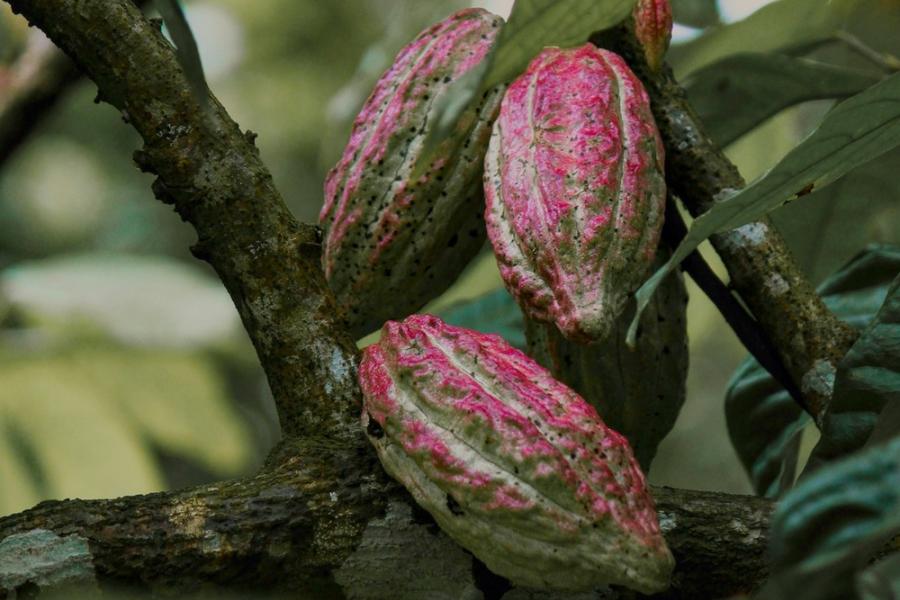
Developing cocoa value chain in Ecuador
LocationEcuadorProductionCocoaDelivery2022AreaRegionalClientCasa Comercial Don JerinomoSectorPrivateService(s)ManagementThe challengeIn Ecuador, the majority of cocoa is produced by smallholder farmers with limited access to inputs and training, leading to low yields and inconsistent quality. Post-harvest practices like fermentation and drying are often inadequate, reducing bean value. Finally, much of the value is captured abroad, highlighting the need for stronger domestic value addition and coordination across the chain.
The resultThe initiative in Ecuador reshaped the cocoa value chain by training producers and sourcing cocoa directly from farmers. By implementing advanced fermentation protocols and pioneering the extraction of cocoa mucilage juice for export, the effort has significantly enhanced production quality, boosted farmer incomes, and achieved impressive agricultural yields.
Brief of the projectThe experiment in Quevedo, Ecuador, successfully addressed multiple facets of resource planning, logistics, and financial management. We orchestrated the training of a group of 150 producers and facilitated the procurement of fresh CCN51 and Nacional cocoa, sourced directly from producers across Manabí, Los Ríos, and Guayas provinces resulting in 500 tons of cocoa for export in 2021.
Our expertise extended to implementing fermentation protocols for national cocoa varieties, including polyphenol-rich purple cocoa and profiled cocoa. Additionally, we pioneered the development of a process to extract, produce, and export juice from the mucilage of cocoa pods, resulting in an output of 8,000 kilograms in 2022.
Through our technical support, we have empowered producers to enhance their income by over 300% while significantly improving the quality of their cocoa beans. This included targeted advancements such as optimizing grain size, promoting the selective use of insecticides, eliminating fungicides, and enhancing plant nutrition. These efforts culminated in achieving exceptional yields of up to 3,500 kilograms per hectare per year, a benchmark of success that underscores our commitment to sustainable and impactful consultancy services.
HighlightsWhat are polyphenol-rich purple cocoa and profiled cocoa ?
Polyphenol-rich purple cocoa is valued for its high antioxidant content, offering health benefits like improved heart and brain function. Profiled cocoa, on the other hand, is tailored for specific flavor or nutritional traits, making it ideal for premium or functional chocolate markets. Both types help producers differentiate their products and access higher-value segments.
A Malagasy consortium in the agri-food industry plans to produce and transform cane sugar at a large-scale site in Madagascar. Expert Farmer had to assess the site's agricultural and water potential to ensure it can meet the sugarcane needs for the client's factory.
Image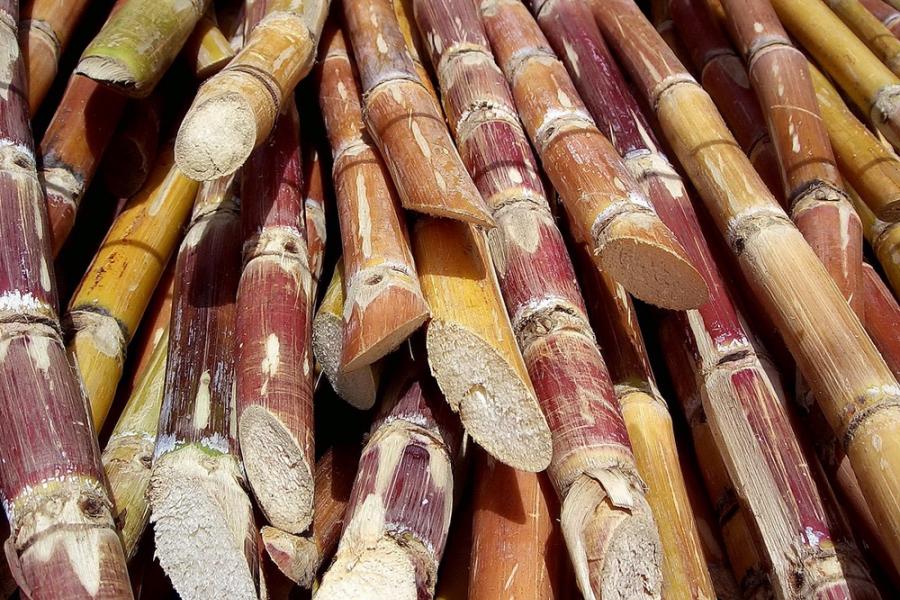
Sugarcane project assessment
LocationMadagascarProductionSugarcaneDelivery2021Area20 000 haClientSofamaSectorPrivateService(s)Project assessmentThe challengeThe proposed venture faces obstacles, including restricted water supply, accelerated soil erosion, and the necessity to assess the land’s aptitude for sugarcane cultivation. Additionally, socio-economic factors and water availability may pose potential hurdles.
The resultExpert Farmer submitted a report concluding that the first site was unsuitable due to irrigation and erosion issues. Consequently, an alternative site was selected that provided optimal conditions for establishing a sugarcane plantation with irrigation.
Brief of the projectDue to the COVID-19 pandemic and Madagascar’s strict entry conditions, the study was conducted in two phases. Initially, a comprehensive review was carried out remotely. Once entry became possible, an on-site mission was organized to refine the conclusions.
Remote study
To evaluate the feasibility of the sugarcane project, the initial step was to collect information from the client and supplement it with current data sources. This involved examining past studies on a Jatropha crop project from 2010 to 2016, as well as analyzing the land’s geomorphology and hydrogeology. Our experts in sugarcane farming and hydrogeology were mobilized to provide valuable insights.
We conducted the analysis of the project’s conditions. This included calculating the water requirements for sugarcane cultivation and taking into account the local pedoclimatic environment as water availability was the first concern of the client. The potential of surface water resources was assessed, leveraging data on existing networks with possibilities for direct pumping and storage. Furthermore, the potential for groundwater usage in irrigation was estimated. We also performed crucial appraisal, such as estimating the necessary water flow and the associated infrastructure expenses.
The overall findings and conclusions were positive, albeit with a number of reservations..
On-site study
The project on-site involved a focus on soil quality, existing vegetation, and water conditions. These observations were carefully compared to remote data to ensure their accuracy. It became apparent that the local expertise provided by the client for the performance of the remote study did not fully capture the complexities of the site. This on-site review proved crucial in identifying fundamental challenges, such as the unsuitability of the soil, due to the top-soil structure and erosion, as well as the overestimation of water availability, which had been overlooked during the initial evaluations.
Hopefully, the on-site mobilization allowed to support the client selecting an alternative site. There, examined factors such as soil composition, water availability and climate conditions confirmed the suitability for sugarcane cultivation and its potential to meet the needs of the planned factory.
HighlightsAre remote studies a good option ?
Remote studies rely on existing datasets that may be outdated or incomplete, which can limit their accuracy. In this particular case, Expert Farmer recommended delaying the project evaluation until Madagascar’s borders were reopened. Although, the client needed a quick review to confirm whether to invest in a second-hand transformation unit he had spotted. Whilst Expert Famer made its best, nonetheless, we adhere to the principle of offering trustworthy guidance. Rather than providing a weak recommendation, we prefer to decline a deal. Top-notch data is necessary for effective recommendations, therefore we advocate for on-site evaluations when feasible and perform remote studies only when we can guarantee the quality of the data.
The client is the Algerian dealer of Valley Irrigation products, promoter of the « Club 80 », an initiative for increasing wheat yields. The project requires technical training and on-the-ground support. Expert Farmer was contracted to both provide a training course, and offer "crop follow-up" on two demonstration farms during the wheat season.
Image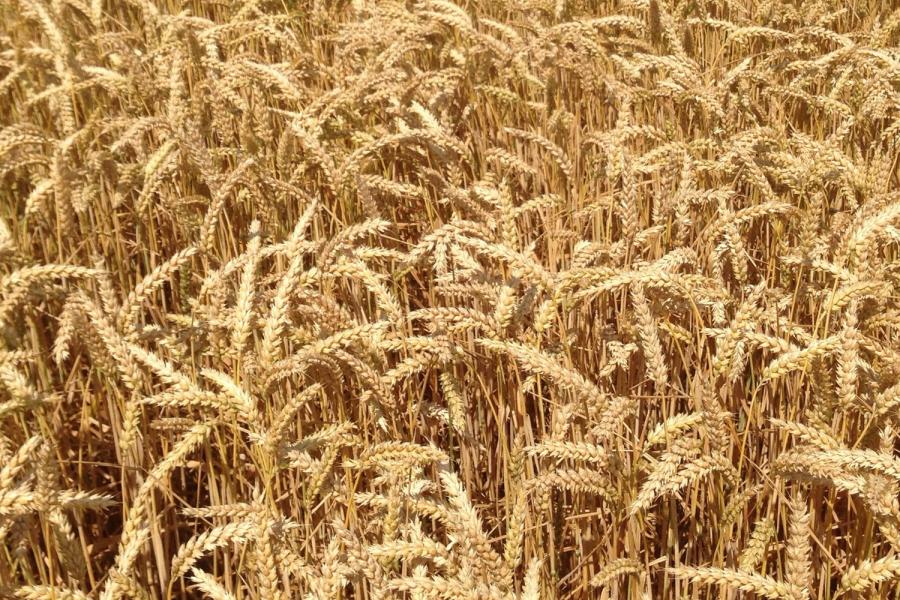
Training of an Algerian farmer to increase wheat production
LocationAlgeriaProductionWheatDelivery2024AreaTwo pilot farmsClientValleySectorPrivateService(s)Tailored serviceThe challengeThe main challenges for this project were the scarcity of water availability, the poor soil quality, and a limited experience of the employees in large-scale farming, which led to low crop yields and incorrect use of equipment.
The resultExpert Farmer delivered a comprehensive training course covering key wheat production techniques. The training was conducted at two pilot farms, where participants gained practical experience, leading to a significant increase in both production and yield.
Brief of the projectCourse design
- Preliminary update production conditions, client profiles, and current farming practices to adapt the crop husbandry plan to the local conditions.
- Elaboration of training materials, including said crop husbandry plan, production cost model, presentations, and informational leaflets.
- Selection of the most promising attendees to ensure the enhanced efficiency of the training sessions.
Desk training
- Presentation of the key aspects of wheat production, including soil preparation, seeding, irrigation, pest control, and harvest techniques.
- Performance of an interactive training course with discussions, feedback questionnaires, and practical examples.
- Collaboration with local farmers through a technical visit to a nearby wheat farm, where participants were able to see firsthand the concepts taught in the training.
- Participation to the « Club 80 » show to promote wheat production good practices.
On-site training
- Performance of on-field training in the two pilot projects to teach crop development monitoring and preventive actions.
- On-site visits during crucial phases such as soil preparation, seeding, crop management, and harvest for capacity building.
- Provision of technical support to the project stakeholder during the whole production cycle.
HighlightsWhat is the purpose of a crop husbandry plan ?
Preparing an accurate crop husbandry plan before launching a crop production campaign is crucial for ensuring a successful and sustainable agricultural season. It serves as a strategic roadmap that aligns all farming activities -from soil preparation to harvest- around clear objectives and timelines. By anticipating the specific needs of each crop, such as nutrient requirements, pest control measures, and irrigation schedules, farmers can allocate resources more efficiently and avoid costly mistakes.
Moreover, a detailed crop husbandry plan helps manage risks by accounting for weather variability, market conditions, and potential disease outbreaks. It also supports financial planning, allowing for better budgeting and investment decisions. In regulated environments, such a plan ensures compliance with environmental and safety standards, while also facilitating traceability and certification processes. Ultimately, a well-crafted crop husbandry plan enhances productivity, promotes sustainability, and increases the likelihood of a profitable harvest.
Would you like help drafting a plan tailored to a specific crop or region?
A key local player in meat production aims at reducing its reliance on international market prices by incorporating part of its feedstuff production. To achieve this, the company commissioned Expert Farmer to evaluate the feasibility of producing corn on pre-identified sites and assess the potential for cost-effective, local production.
Image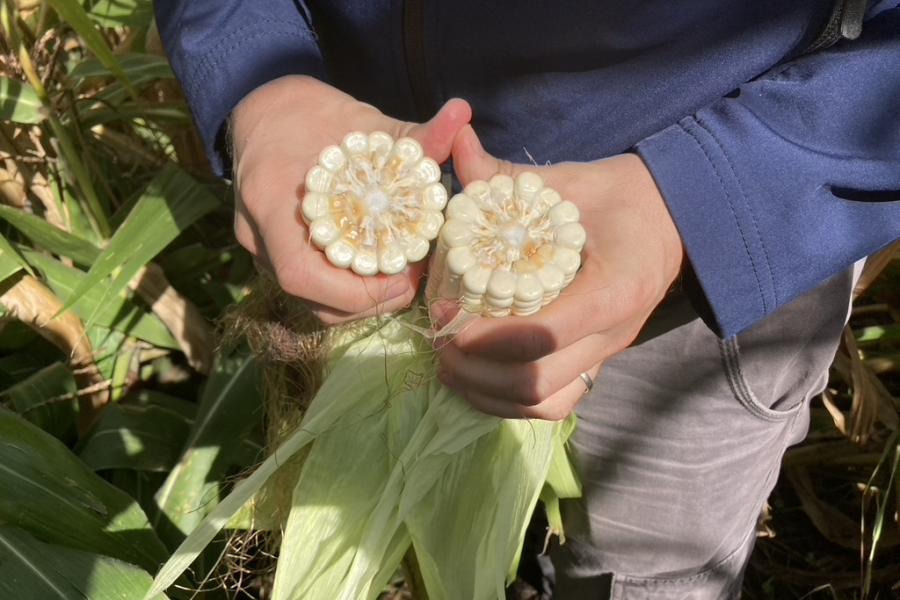
Mechanized corn cultivation in a tropical climate
LocationPhilippinesProductionCornDelivery2023AreaMindanao IslandClientMaharlika GroupSectorPrivateService(s)Project assessmentAgri-feasibility studyThe challengeIn the Philippines, securing land for large agricultural projects is challenging due to regulatory constraints. Local conditions often hinder mechanization, making efficient production difficult. Additionally, the country's reliance on imported corn and soy, poses financial and availability risks.
The resultAlthough a crucial portion of the pre-identified area had to be excluded, Expert Farmer successfully refined the project options, developing an innovative solution that combines integrated production with contract farming opportunities to achieve breakeven.
Brief of the projectProject Assessment
During the initial evaluation of the proposed corn cultivation project, the Expert Farmer team has evaluated the viability of the site. We examined the site’s characteristics, noting areas with uneven terrain that were not suitable for mechanization and identifying regions susceptible to landslides if cleared.
Furthermore, we analyzed environmental factors, such as soil quality and weather conditions, to forecast their influence on the potential yield. Our expert farmers conducted a detailed remote-sensing topographic review to assess the suitability of the land. We also consulted with farmers and local agricultural managers to collect insights into land use and potential contractual arrangements.
In conclusion, our team delivered a thorough report, outlining our findings and suggesting practical approaches for the site’s future development.
Agri-feasibility
As part of the feasibility analysis, our team of expert farmers developed the plan for the complete crop production. We considered realistic scenarios, encompassing the entire production process. It covered the necessary technologies and operational methods, as well as the specific input requirements, needed for a successful outcome. Moreover, the project included the creation of a comprehensive drainage system spanning the entire developable area.
The corn crop husbandry plan, including rotation schedules, best practices, and necessary equipment, was adapted to the local, challenging conditions. Future efficient operation was supported by an organizational chart that was customized for the staff, their roles, and responsibilities in the production process. The project was carefully structured to maximize resources and minimize risks.
A detailed investment and cost analysis were conducted. Expert Farmer developed a business plan, including an assessment of production costs, expected profits, and potential margins. This allowed the client to secure financing from the bank.
HighlightsGrowing maize in monsoon-prone environments
The main challenge to producing corn in the Philippines lies in managing the effects of the monsoon climate, particularly the excessive rainfall and poor natural drainage that led to root oxygen deprivation, nutrient uptake issues, and increased susceptibility to disease. The Philippines' monsoon season brings intense and prolonged rainfall, which poses a serious threat to corn cultivation. In tropical countries, large areas of land are submerged for much of the year, or have topographies that make them prone to waterlogging. These conditions are incompatible with corn farming, which requires well-drained soil to avoid root rot and yield loss. To remedy this, the development of a suitable drainage system is essential and demands the involvement of specialized knowledge during the planning phase.
H&W Rice has developed a rice production project with Expert Farmer and started with the construction of a paddy rice mill. The company wants to secure the influx of paddy rice to the mill by developing contracts with private growers within the project land and outside. Expert Famer has been remobilized to design the project execution plan for contract farming.
ImageRedesigning large-scale rice to integrate ingrower scheme
LocationNigeriaProductionRiceDelivery2022Area5 000 haClientH&W Rice Co. Ltd.SectorPrivateService(s)Agri-feasibility studyThe challengeAs the H&W Rice relies on the farmers to run its mills profitably, it is critical to secure a good relation with farmers so that both sides find interest in collaboration. In-growers can foster a closer relationship than the out-growers but require more investment. Once the in-growers are secured, the out growers can be targeted more widely
The resultExpert Farmer has detailed the strategy and operational management of the contractualisation with farmers, with sizing and organization of the management, technical aspects with crop husbandry requirement and logistics, as well as the economic dimension of the project.
Brief of the projectExpert Farmer as successfully provided the following scope of services.
Management support
- Definition of the sizing of the operations, with number of contracting parties and surface covered,
- Nature of the contracting conditions with outputs of both sides of the contract, and targeted performance per phase of the project,
- Mapping of the area secured for the project with relevant data (economic, geographic),
- Management structure of the contractualisation, for ingrower and outgrower systems,
- Operation management organization with an emphasis on the data recording and processing of the project.
Technical aspects
- Advanced design of the crop husbandry plan dressed with all relevant matters: equipment, inputs, water requirements, genetics, rotation, activities, manpower, cropping schedule, soil quality,
- Scaling of infrastructure requirement for the project, and all investment necessary,
- Training requirements and inventory of skills for the project prior to the project, and during the project to ensure quality of operations,
- Proposition of tools to help in the management of operations (software and hardware).
Economic topics
- Analysis of the Operational expenditures (OpEx) of the project
- Analysis of the Capital expenditures (CapEx) of the project
- Global financial analysis of the project
HighlightsWhat is an ingrower scheme ?
In this scheme, the buyer leases land to small farmers (ingrowers) who receive comprehensive support, including irrigation infrastructure and water, quality inputs (seeds, fertilizers, agrochemicals), mechanized services (soil preparation, transplanting, harvesting), and technical assistance. These farmers operate under a contract farming system. The industrial entity provides them with the necessary resources upfront, then recovers costs by deducting them from the harvested paddy rice, which they must exclusively supply to the company’s mill. This model aims to be socially inclusive and economically scalable, securing a reliable rice supply chain while empowering local farmers.
GLB Invest was owned by Lebanese and Sudanese investors. In 2011, 87 200 ha of land in Nile River State, Sudan, was granted to the investors by the government. The project aimed at securing significant and sustainable financial returns. Laking of agronomic capacity, the investors required the involvement of an international farming company to start up the project.
Image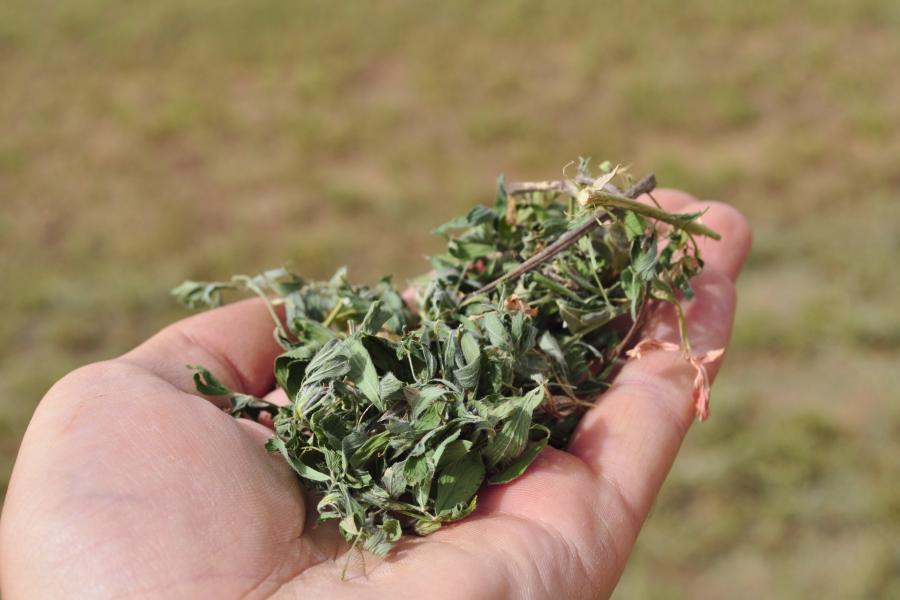
Alfalfa project development and management
LocationSudanProductionAlfalfaCornSorghumRhodes grassDelivery2013Area87 200 haClientGLB InvestSectorPrivateService(s)ManagementThe challengeIn 2013, the first phase of 40 pivots and its irrigation network was under installation. An operational plan of the project was not available, however, the client wanted to start seeding, as soon as possible, supported by a top-level crop management company to avoid any shortfall on its return on investment.
The resultWithin 6 months after its initial involvement in the project, Expert Farmer was able to start the farming of 2000 ha, 90 % planted with alfalfa. Under the leadership of the Expert Farmer, GLB succeeded in achieving the production of top quality alfalfa recognized by the international market and exported to the Gulf Countries, Saudi Arabia and China.
Brief of the projectThe agronomic and management design for the project was successfully completed by Expert Farmer. The crop planning for alfalfa, corn, sorghum, and Rhodes grass was meticulously designed with minimal soil preparation and optimized crop husbandry plans. The crop husbandry plan was optimized to reach top-level quality production, and farming equipment was procured for minimum tillage practices. The organizational structure of the farm, the workshop, and the maintenance procedures were established, as well as the record-keeping and budgeting systems for farming operations.
Expert Farmer successfully managed the full-time crop management. The recruitment recommendations were followed, and job descriptions were prepared for on-site and remote recruitment processes. The new management team and workforce were trained and evaluated, and the project was managed on-site by one of our dedicated senior farm manager.
The economic analysis was conducted successfully, including the economic study and profitability forecast for each cropping season. The Business Plan was reviewed and updated when relevant, and economic recording and analysis for SAP integration were performed.
In addition to the full-time management team involved in daily operations, Expert Farmer organized complementary missions to update the farm design according to the evolution of shareholder requirements and specific tasks requiring subject matter experts. These included:
- Review and update of large-scale equipment line
- Validation designs for housing, warehouse, storage and civil engineering
- Development of the project and setup of farm extension project
- Topographic and crop status remote-sensing with dedicated drones
- Site assessment of the full project extension potential reaching 87,200 ha
- Economic forecast
The project was a resounding success, showcasing Expert Farmer's expertise and meticulous planning in every aspect of the agricultural endeavor.
Agriculture and agribusiness insights
These texts share our extensive knowledge in agriculture and agribusiness, offering insights, facts, and ideas to inform and inspire your own projects or investments. They aim to spark interaction and help turn your agricultural vision into reality. We also share our news with you here.
Advancing expertise in carbon finance: Matteo Iagatti completes accredited training from the
Advancing expertise in carbon finance: Matteo Iagatti completes accredited training from the Renewable Energy Institute
In the frame of our recent technical mission in Libya (as of May 2024), in the Benghazi area, we have visited a multitude of locations alongside our partners of a special Consortium gathered and organised by FarmTech. This consortium aims at evaluating the potential -in terms of Agriculture- of the area within the Jardinah Agricultural Project.
What is regenerative agriculture?
According to the Oxford Dictionary, « agriculture » is
What is regenerative agriculture?
According to the Oxford Dictionary, « agriculture » is « the science or practise of farming, including cultivation of the soil for the growing of crops and the rearing of animals to provide food, wool, and other products ».
Considering that the adjective « regenerative » is used « relating to something growing or being grown again », it could seem like a bit of a pleonasm to use them both in the same expression.As global attention shifts toward environmental sustainability, farmers are uniquely positioned
As global attention shifts toward environmental sustainability, farmers are uniquely positioned to benefit from reducing their reliance on fossil fuels.
CSR covers the ethical and moral obligations of a business (farm or nonfarm) concerning the
CSR covers the ethical and moral obligations of a business (farm or nonfarm) concerning the environment, its employees, the local community, competitors, the economy and any other factors that its business operations impact. CSR is an integral component of sustainable agriculture, which, among many other definitions, has been defined as progress with respect to four goals:
- Producing enough to satisfy human needs
- Enhancing environmental quality and protecting the natural resource base
- Being profitable
- Increasing the quality of life for farmers, farm workers, and society as a whole.
It is clear from this definition that sustainable agriculture is actually not feasible without the active implementation of CSR.
When deciding whether it would be to your advantage to change your farming model, it is probably
When deciding whether it would be to your advantage to change your farming model, it is probably helpful to briefly consider some of the factors that impact current and future farming practices. You need to determine why you might change your model and, if yes, to what exactly. Agriculture worldwide is succeeding in terms of production; however, this is not the case for sustainability. The production success, utilising conventional farming methodology, is harming the environment and public health and is not sustainable in the long term. Excess use of pesticides has actually caused a plague of resistant weeds, fertiliser runoff produces dead aquatic zones and monoculture systems diminish soil health.
